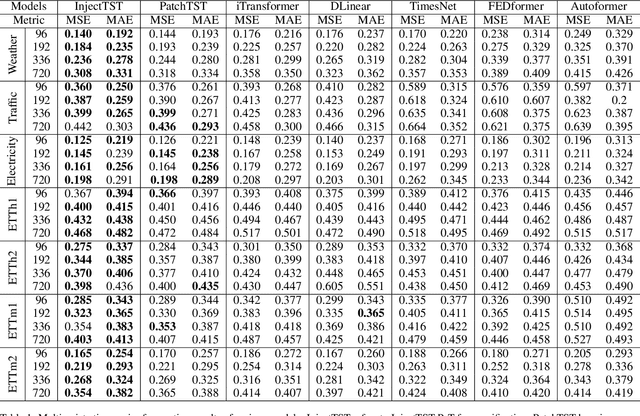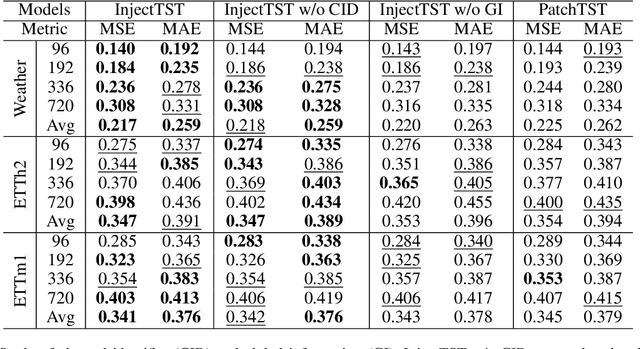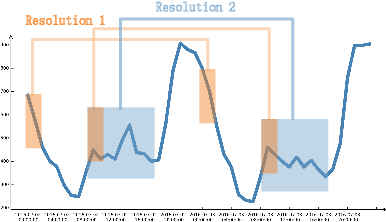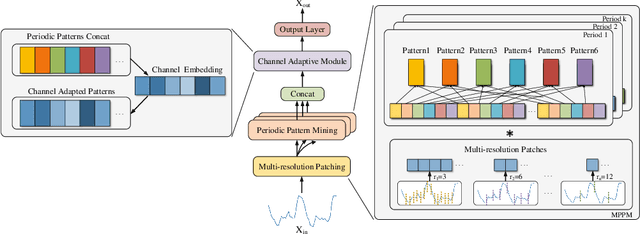Zhiyan Song
InjectTST: A Transformer Method of Injecting Global Information into Independent Channels for Long Time Series Forecasting
Mar 05, 2024



Abstract:Transformer has become one of the most popular architectures for multivariate time series (MTS) forecasting. Recent Transformer-based MTS models generally prefer channel-independent structures with the observation that channel independence can alleviate noise and distribution drift issues, leading to more robustness. Nevertheless, it is essential to note that channel dependency remains an inherent characteristic of MTS, carrying valuable information. Designing a model that incorporates merits of both channel-independent and channel-mixing structures is a key to further improvement of MTS forecasting, which poses a challenging conundrum. To address the problem, an injection method for global information into channel-independent Transformer, InjectTST, is proposed in this paper. Instead of designing a channel-mixing model directly, we retain the channel-independent backbone and gradually inject global information into individual channels in a selective way. A channel identifier, a global mixing module and a self-contextual attention module are devised in InjectTST. The channel identifier can help Transformer distinguish channels for better representation. The global mixing module produces cross-channel global information. Through the self-contextual attention module, the independent channels can selectively concentrate on useful global information without robustness degradation, and channel mixing is achieved implicitly. Experiments indicate that InjectTST can achieve stable improvement compared with state-of-the-art models.
MPPN: Multi-Resolution Periodic Pattern Network For Long-Term Time Series Forecasting
Jun 12, 2023



Abstract:Long-term time series forecasting plays an important role in various real-world scenarios. Recent deep learning methods for long-term series forecasting tend to capture the intricate patterns of time series by decomposition-based or sampling-based methods. However, most of the extracted patterns may include unpredictable noise and lack good interpretability. Moreover, the multivariate series forecasting methods usually ignore the individual characteristics of each variate, which may affecting the prediction accuracy. To capture the intrinsic patterns of time series, we propose a novel deep learning network architecture, named Multi-resolution Periodic Pattern Network (MPPN), for long-term series forecasting. We first construct context-aware multi-resolution semantic units of time series and employ multi-periodic pattern mining to capture the key patterns of time series. Then, we propose a channel adaptive module to capture the perceptions of multivariate towards different patterns. In addition, we present an entropy-based method for evaluating the predictability of time series and providing an upper bound on the prediction accuracy before forecasting. Our experimental evaluation on nine real-world benchmarks demonstrated that MPPN significantly outperforms the state-of-the-art Transformer-based, decomposition-based and sampling-based methods for long-term series forecasting.
 Add to Chrome
Add to Chrome Add to Firefox
Add to Firefox Add to Edge
Add to Edge